Politics of Prevention: Us Helping Us’ DeMarc Hickson on the Future of HIV/AIDS
For World AIDS Day, Us Helping Us executive director DeMarc Hickson talks about sex, stigma, and the need for education.

There was a moment when Dr. DeMarc Hickson thought that his career in public health might be leading him deeper into matters of the heart. “I had originally started working at Jackson State University, in the Jackson Heart Study,” Hickson recalls of the position he took after finishing his PhD at Emory, where the South Carolina native had also worked at the Centers for Disease Control. “[But] I wanted to get back in community-based work, in particular around HIV.”
At the time, just over a decade ago, many might have considered the most harrowing days of the AIDS epidemic to be past. But transmission rates remained — and still remain — persistently alarming, particularly in minority communities, and there’s a perpetual need for research, awareness, care, and prevention.
“Even in high school, growing up in South Carolina, we never talked about STDs really or HIV within school,” Hickson says. “My mom did because she was a teacher, and made sure that we had condoms or we talked about sex and those types of things. I went to undergrad at Norfolk State in Norfolk, Virginia. Don’t recall talking about HIV or STDs, and maybe that was [as a result of] being more around heterosexual individuals. They don’t talk about those things or they never really talked about that then. It wasn’t until Emory, because they were right beside the CDC, [that] you heard of everything from Ebola to flu to HIV.”
Working in Mississippi, Hickson was seeking a way to bridge his expertise in biomedical research with his passion for community-based action in the fight against HIV.
“One of my friends was a [CDC] project officer, and she referred me to My Brother’s Keeper, which is a nonprofit organization in Jackson that was similar to Us Helping Us, working in the black community to address the HIV epidemic,” he says. “The founder and CEO at the time, Dr. Mark Colomb, because I had applied for a recruiter job, was like, ‘You have a PhD, why are you trying to be a recruiter? You can come in and be my second hand.'”
A longtime leader in the HIV community, Colomb wanted Hickson to bring his cardiovascular experience from working at the Jackson Heart Study to My Brother’s Keeper. When Colomb passed away in 2011, the organization’s new CEO, Dr. June Gipson, asked Hickson to be her chief operating officer.
While at My Brother’s Keeper, Hickson partnered on a research project with Us Helping Us, Washington, D.C.’s 33-year old organization known for its commitment to improving the health of communities of color and reducing the impact of HIV/AIDS in the entire Black community. The research project, developed in collaboration with UHU’s then-executive director Dr. Ron Simmons, aimed to increase understanding of risk and protective factors for HIV among black gay men. Although that project didn’t get funded, Dr. Hickson and his work made a lasting impression at UHU.
Soon thereafter, he received a phone call from someone on the search committee for the organization’s next executive director. Hickson figured they might want him to join the committee. “I was like, ‘Oh, yeah. I wouldn’t mind serving on the committee.'”
But UHU called again, clarifying that they didn’t want Hickson to help them find the next executive director, they wanted him to interview to be the new executive director.
“I knew of Us Helping Us and people that worked here for years,” he says. “When you work in the field, you kind of know the other organizations. So I came and interviewed and history is history. I was very honored, and now I’m here.”
For Hickson, success at UHU is about cultivating relationships — with the clients, with other like-minded organizations, with the public-at-large in order to educate and inform. It’s something he brings into his professional life from his hobby as an urban farmer.
“Farming is just my — what do they call it now? — self care,” he says, noting that has grown everything from tomatoes to eggplants to yellow peppers. “And then again, I just enjoy it.”

METRO WEEKLY: This may seem like an obvious question, but has the “us” in Us Helping Us changed at all since 1985?
DEMARC HICKSON: I would say yes. The “us” in Us Helping Us, as originally founded, were black gay men who were becoming infected with HIV at the start of the epidemic. They came together as a support group of volunteers, where they would come in and talk about mind, body, and spirit, in terms of health maintenance for living with HIV. The “us” has since expanded to include black gay men who are not living with HIV, transgender individuals, irrespective of HIV status, and really just the entire black community and other minority communities. We serve everyone, we’re open to everyone, but we do have a particular focus on the black community.
MW: Why did the focus expand from men’s health to including transgender individuals and women?
HICKSON: Because HIV is not just a gay man’s disease, as some people have called it. And we saw the need for transgender individuals as well as women. In the ’90s, or early 2000, Us Helping Us actually incorporated Transgender Health Empowerment as a separate organization. To date, they’ve had to close, so that was just the start of recognizing the need in the community, and expanding to address those particular needs. Just like with heterosexual women, or cisgender women — we provide a variety of services for them as well, including POZitively BeYoutiful, a support group for women who are living with HIV. We’re going to expand that group to be more of a therapy group, and then also have a social support group, where we would have different activities throughout the year that they can attend. Because as our client base ages, you can imagine their social isolation increases. So really [it’s] having a two-pronged approach to be able to address their particular needs.
MW: Was expanding your services, and who you’re addressing, in response to any particular activism? Were people saying we need you here and you’re not here?
HICKSON: It’s probably a mix. For example, SaVanna Wanzer has been pushing us to do more in the transgender community. And I know we’ve gotten a few grants and other things. So I think it’s individual activists who have reached out to the leadership at Us Helping Us, saying we need this or we need that.
MW: This interview will run in our World AIDS Day issue. What do you have planned for World AIDS Day?
HICKSON: We have a number of events we’re partnering on with different organizations here in the D.C. area. We are hosting our state of the epidemic and film screening of the Us Helping Us history at the University of District of Columbia. And we’re going to have a state of the epidemic brunch, where we’ll have officials from HRSA, SAMHSA, CDC, and NIH, like Dr. Tony Fauci. They’ll talk about the epidemic on a national level, from their perspective within these federal agencies. We’re also going to have another panel of community members talking about their experiences, either living with — or not living with — PrEP.
MW: For somebody who wants to observe World AIDS Day meaningfully, what would you encourage them to do?
HICKSON: One would be to volunteer with an AIDS service or community-based organization that provides these direct services — we’re always in need of human resources and support. But also to educate themselves — and I think [volunteering is] a great platform because you are in the trenches and you actually get to learn about advancements that have happened in the field. You’re able to work alongside somebody that may be living with HIV, because it doesn’t look the same as it did at the start of the epidemic.
An increase in community education can help to reduce the stigma around HIV, and that it can also, in reducing the stigma, encourage individuals that may have anxiety about coming in to get tested, people who may want to know their status but are scared to know. If somebody hasn’t been tested in the past 12 months, or three months as a transgendered individual or a gay and bisexual man, then get tested so that you can know your status.
there’s individuals living with HIV that are living longer than individuals without HIV.”
MW: You talked about educating people. What are some common misperceptions that you find are still sort of hard to nudge people out of?
HICKSON: One, I think, is just on how HIV has always been perceived as a “death sentence.” And I put that in quotes. People don’t understand that the new treatments are less toxic, that they help to prolong life, and that there’s individuals who are living with HIV that are living longer than individuals without HIV. And also that it’s not HIV that a lot of people are dying from, it’s heart disease, or a stroke. Though they may have HIV, they’re not dying from that.
I would also say the new research that’s out shows undetectable equals untransmittable. That is another piece that I don’t think people know about. Though it’s existed for years, now we have the science that proves that if you’re on your medication and you are undetectable, there’s a very, very, very low risk of transmitting it to someone else. But that’s on the care end. On the prevention end, I think that there’s always the stigma around PrEP.
MW: What stigma? That if you’re on PreP you must be a slut?
HICKSON: Yeah, yeah. Like you’re a “Truvada whore,” or that you are promiscuous because now that means you’re going to go out and have more sex, and this and that. I think that’s just one of the misnomers around that as well, instead of it just being a preventative tool. I’m sure they wouldn’t say the same thing if you could prevent hypertension, if there was a pill for that.
MW: But they say the same thing about birth control.
HICKSON: That’s just the thing — people are now always willing to talk about sex. We talk about fertility rates and we talk about procreation, or just all those other terms, but don’t want to talk about the act of what it takes to make a baby.
MW: Something that’s been somewhat controversial in some states is giving PrEP to teens. What are your thoughts on teenagers using it, or UHU offering PrEP to those under the age of 18?
HICKSON: I think it’s a great idea in concept and theory. My only concern is the effects of the medication on development. So if we think about brain development, that it continues until someone is 24, 25, we’re talking about growth that occurs primarily in these ages. If the medications that are currently on the market can impact bone density for someone who’s still developing, that’s a concern. Whether that’s brain development, bone development, organ development, all those things still happen. We just don’t know the effects on those that are less than 18. I know there are states who are prescribing, and I know that there are individual prescribers who will prescribe. I think that they are being trailblazers, but I’m still concerned about it. Because we do see reductions in bone density. Though it may be minor, or it may not be a large percentage, we just don’t know for those that are less than 18.
MW: Does UHU serve clients who are minors?
HICKSON: Yes. Because I think the legal age here, just like in other jurisdictions, is you can test for HIV and STDs without parental consent.
MW: At what age?
HICKSON: I believe it’s 13. But it’s then that part about the PrEP or any other medication, having that conversation. Especially if the adolescent or teen is on their parent’s insurance. That’s another piece that can happen, especially if a mother or father sees Truvada, which is an HIV medication, on there, and they’re like, “What are you taking this for? Do you have something to tell me?” Then you have disclosure issues around sexual orientation. And coming from Mississippi, we saw that at least once or twice a month. Somebody being expelled from their house because they told their parents that they were gay or lesbian. So that’s just another kind of cultural piece, that I’m also always leery about, because I don’t think that we’ve advanced that much as a society.

MW: On your site, you note the CDC study from 2017, talking about the high rate of young people becoming infected in D.C. It’s twice the national average. I know it’s hard to have these conversations about sex or PrEP, but what conversations can you have with young people that are not going to upset the adults in their lives, but actually have some impact on their health?
HICKSON: Well, I think we have to have those conversations. Because it’s stuff that’s happening. So we talk to our kids about if they’re using cigarettes, or if they’re drinking alcohol with their friends, or those particular things, but we don’t talk about sex. And we know that it is happening, especially when we have middle school age girls that are pregnant. So we know that is happening.
I think we have to just make sure that it’s in a context that is appropriate for whatever demographic that we’re talking about, or that we’re serving. Because again, I know coming up through school, sex education was a heterosexual approach. We didn’t talk about it in terms of whether it’s a man, same-gender-loving men having sex with men, or same-gender-loving woman. So there are a lot of things that are nuanced for both of those. If we’re talking about lesbians, then we know that a majority use sex toys. That’s another mode of transmission, especially for sexually transmitted infections. But we don’t talk about cleaning sex toys, or those things like that.
MW: But you do talk about that here?
HICKSON: Oh, yeah, definitely. We actually have a 101, 201, and a 301 course that we’re going to be taking to the college campuses and high schools, that, as you can imagine, progressively gets to those more in-depth conversations that aren’t just “Here’s a picture of gonorrhea, here’s a picture of syphilis.” Really getting into the conversations about sexual acts.
We are often funded by local health departments, or CDC, and they have their own messages that they support and want us to say. But they don’t talk about the other acts that people are doing. In terms of if somebody ejaculates inside of a man or woman, about pushing out. Talking about rectal douching for gay men. Because there’s the research out there now that shows the prevalence of rectal douching on the magnitude of 50- to 65-percent within gay men. That’s high. So if we’re talking about improper usage, where it could damage the mucosal lining in the rectum, which now increases risk of HIV infection, or any sexual transmitted infection, then we can show you how to properly use a rectal douche. Instead of saying, “No, you’re not supposed to that,” which is what CDC or the health department will say, or they would divert around it, we will say, “Hey, here’s how to properly do it. Don’t use the saline solution or the solution that’s in the bottle. Pour it out. Don’t use bleach or shampoos, and all these things.” Just having those conversations.
We have to have the same thing with teens. At My Brother’s Keeper, we partnered with one of the local high schools, and one of the young ladies came in because we were doing STD screenings. And she was like, “Oh, I have a rash on my underarm.” So the counselor talking to her was like, “What have you been doing, how do you believe that you got that?” Come to find out they were having armpit sex, to be able to save their virginity until marriage. So they were allowing the guys to act out sex in their armpits.
Kids are going to be creative, so you have to listen. You have to be able to sit and talk and have those conversations. Maybe you want to get some lube and put it in your arm and you may want him to use a condom, if that’s what you’re going to do to save your virginity. It’s going to have to be those type of conversations.
MW: Do you think that the general message about PrEP and U=U is getting out to the community here?
HICKSON: I think PrEP is out there because that message has been out there a little bit more. But there’s still a lot of work that needs to be done. We were at Baltimore Pride, and a high school teacher came over and was like “What is PrEP?” And we started talking to her and it was like “Oh, y’all have to come to my school and come to my class because they need this. They always talking about fucking.” That’s a direct quote from her.
So we have been working to educate her students and to get into more of the schools. But I think that there still needs to be more messaging around it. Which is another opportunity for World AIDS Day — for being that champion or having some type of message. Even if you put it on your Facebook page, talking about the preventative measures. Because then that reaches how ever many friends you have on Facebook. We do a lot of testing and within our testing sessions we talk about PrEP, especially for those who have indications or sexual behaviors that are linked to HIV acquisition or transmission. We do educate folks around PrEP. And I would say a good 60- to 70-percent have not heard of PrEP.
‘I don’t need [condoms]. That’s for the fags.’ Those types of things still happen that add to the stigma.”
MW: It always surprises me these days when people haven’t heard of it. The statistics support the need for HIV/AIDS care and prevention, and campaigning, that specifically targets the black community. What are the challenges in reaching the black community versus everybody else?
HICKSON: I’m glad you asked that. I think the challenge for the black community is inherent to what it’s been from the very beginning: that it’s a gay man’s disease. Because even when our outreach and testing team has been out passing out condoms, they’ve come back and told me stories black men are like, “I don’t need that shit. That’s for the fags.” Those types of things still happen that add to the stigma.
And then you have in the black community [folks who] don’t want to talk about sex. Because it’s not supposed to be had outside of marriage. We still have the religious influence even here in D.C. and it gets stronger as you go towards the Mississippi River. And then, I think the black community has just inherently always just turned a blind eye to stuff. Whether it’s around mental health issues, whether it’s around childhood sexual abuse, which is high in the black community. And abuse period.
So for the black community, with all the other things that we face, HIV is oftentimes the last thing that folks want to be talking and hearing about. Even as black gay men. But we know that sex is a big driver in the black community. As black men, you’re supposed to be this herculean type of man with this hyper sex drive. And I say that also in talking about hypertension. We know the high rates of hypertension in black men that also lead to heart disease and stroke. But we don’t want to take the hypertension meds because then we have difficulties performing in bed sexually. So again, [someone] will go with not taking hypertension meds so [he] can be able to perform in bed. It’s just those different things that we just have to address. It’s not a monolith for one. So one message isn’t going to be the same for the entire community.
MW: There are a lot of organizations here whose missions overlap: Casa Ruby, UHU, Whitman-Walker. How do you balance collaborating, not stepping on other people’s toes, and still competing for dollars?
HICKSON: I think the biggest thing is really working with, and seeing how you can be supportive of, other organizations. I think it’s just having those fruitful conversations and seeing how to partner. Not everybody wants to partner, and everybody can’t partner because they don’t know how to partner and what partnership means. So I think having that upfront conversation, whether it’s about the budget, whether it’s about reporting numbers, because with it being largely grant-funded, you have some deliverable attached to a grant. It’s really aligning organizational missions and approaches together.
We partner heavily with Heart to Hand — they’re in Prince George’s County. We have a monthly game night with them and also what we call Pillow Talk. We talk about relationships, impact of HIV within relationships, sero-discordant couples, etc. And I know we’ve had other people reach out and say, “Hey, let’s go in together and do a testing event.” And it’s like, “Why are we going to have three people on the same site testing?” You don’t want to put that kind of competition in the air when it’s not needed. Because then the community will truly see it and feel it. I think it’s just like with any other business, you’re going to have to bring your A game. It’s like McDonald’s, Wendy’s, Burger King — they’re all fast food restaurants selling burgers, so you got to see how yours is going to be different.
MW: What do you and the organization envision for the fourth decade of Us Helping Us?
HICKSON: I think one is looking at addressing all health disparities. Whether that’s disparities in education, disparities in health literacy, disparities in income, net worth, financial literacy — really addressing all of those things and being able to provide either onsite services or working very closely with others to provide these particular services. For example, we expanded to have a food pantry — the Us Helping Us cupboard. Really addressing hunger, especially if we look at the number of Americans who miss a meal or even go hungry on multiple days. Being a community-based leader that addresses your physical health, your emotional health, your financial health, and even your mental health. Because all of those are needed to have good overall wellbeing.
I think also to remain at our core around mind, body, and spirit, especially as it relates to health. But to really normalize HIV as just a standard of care. Whether that’s coming in for your annual physical or your annual screening, that it includes HIV and STD testing. That we have reduced stigma around living with HIV or even testing for HIV because we know anxiety levels are high as well. A lot of people don’t come in for testing.
And to be that go-to community leader for communities of color. I know that it’s very diverse here in D.C. when you say communities of color, but whether that’s Latinos, blacks, African immigrants, Caribbean immigrants, just being that place where people can go in a nonjudgmental environment, that all of their healthcare needs are addressed. Where we work with clients that understand even your essential supportive needs around education, income, even all the way down to violence, which we don’t talk about that a lot. We don’t talk about intimate partner violence, whether physical, emotional, verbal, etc.
MW: What signs are you seeing that the work here is having a positive impact?
HICKSON: By clients who remained engaged in care. Whether that’s HIV care or preventative care. Clients that come back frequently. Every three months or six months. That they’re scheduled to come back. That our clientele is diversifying. We’ve had individuals from Haiti to Poland to Ethiopia. I think in that regard I can see a lot of changes and successes. And then just hearing stories from community members, the services that they received and how they were treated better than better. Or how people made them feel welcome here. And then when you have your partners or your funders even saying how people have come to them to say how good of a job we did. I think that that’s a good measuring tool for us.
Us Helping Us is located at 3636 Georgia Ave. NW in Washington, D.C., and operates a second facility at 8240 Professional Place in Landover, Md. For hours, more info on their services or volunteering, or to make an appointment, visit ushelpingus.org or call 202-446-1100. Follow them on Twitter and Instagram at @ushelpingus.
Support Metro Weekly’s Journalism
These are challenging times for news organizations. And yet it’s crucial we stay active and provide vital resources and information to both our local readers and the world. So won’t you please take a moment and consider supporting Metro Weekly with a membership? For as little as $5 a month, you can help ensure Metro Weekly magazine and MetroWeekly.com remain free, viable resources as we provide the best, most diverse, culturally-resonant LGBTQ coverage in both the D.C. region and around the world. Memberships come with exclusive perks and discounts, your own personal digital delivery of each week’s magazine (and an archive), access to our Member's Lounge when it launches this fall, and exclusive members-only items like Metro Weekly Membership Mugs and Tote Bags! Check out all our membership levels here and please join us today!






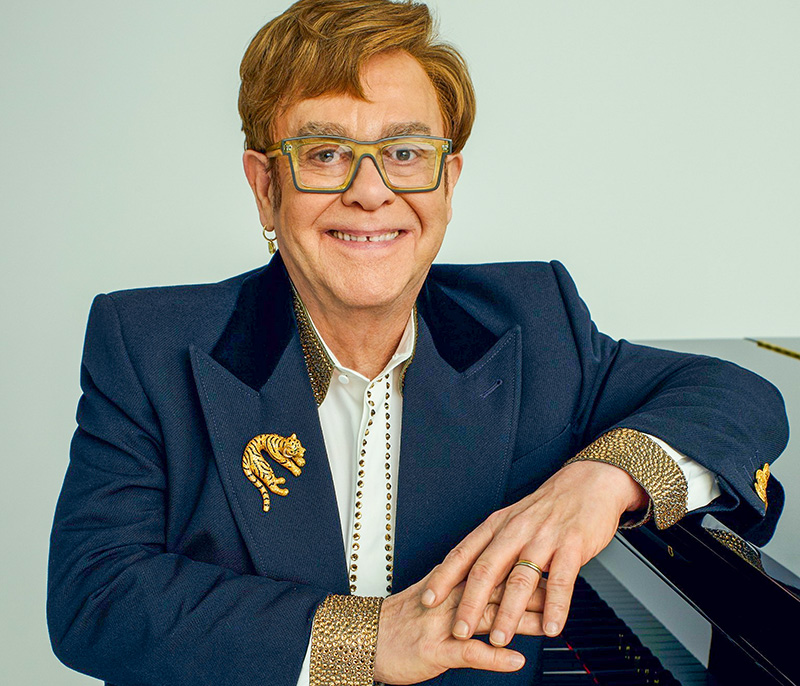

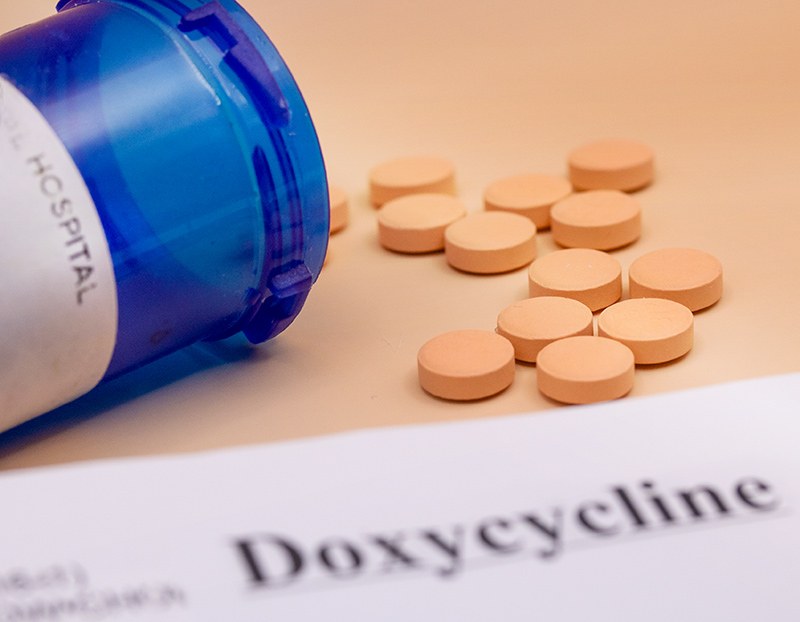












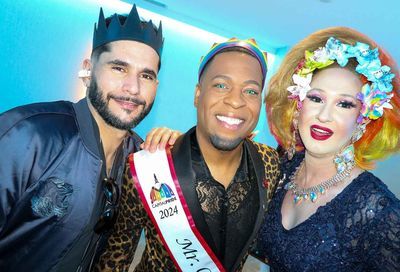
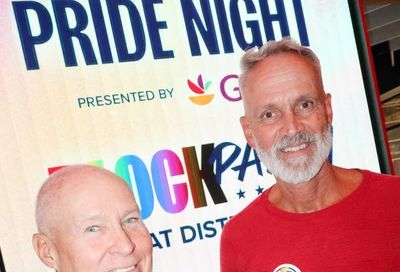
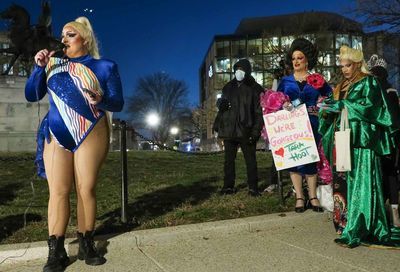
You must be logged in to post a comment.